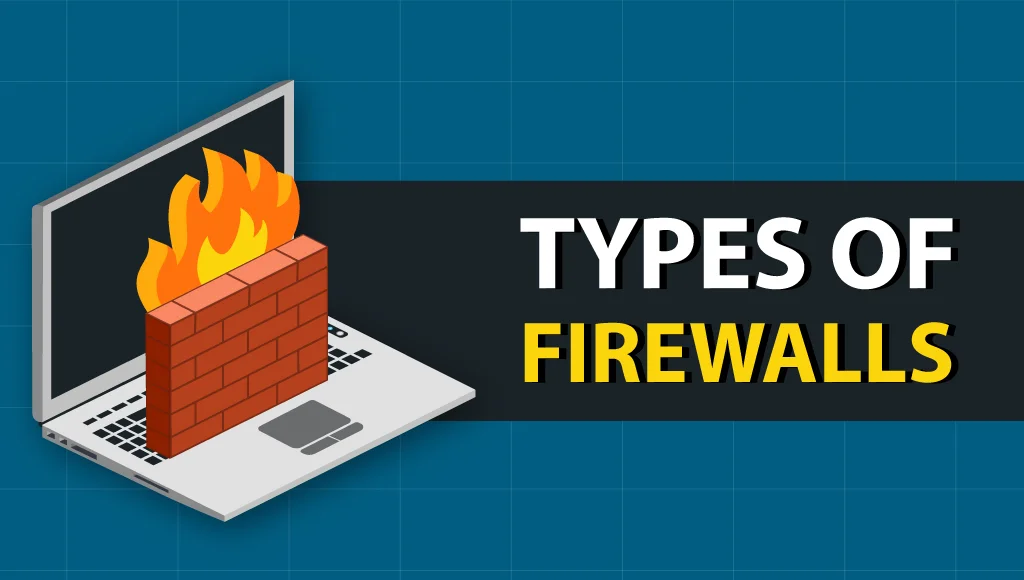Blog
Top 10 Tips For Choosing The Best Firewall For Your Business
Introduction of Firewall
A Firewall is defined as a network security device that acts as a protective layer for the server to monitor the incoming and outgoing network traffic based on some previously established network policies of an organization. It uses a set of rules to decide whether or not to allow or block specific data packets or network traffic. Firewalls fulfill the major purpose of establishing a barrier between the private, secured internal network and the incoming traffic from external sources like the public Internet to block malicious threats like hackers and viruses.
Firewalls have been acting as the first line of defence in network security for over 25 years now. They can be hardware or software-based. Firewall deployments have advanced and the features and functionality have also been enhanced over the past few decades. They can now evaluate individual packets of traffic and test the packets to determine if they are safe and threat-free. They precisely analyze incoming traffic and filter traffic arising from suspicious or unsecured sources to prevent and protect from threats and attacks.
Importance of Firewall in any Business
Every business functioning out there having a wide network should have a firewall established, regardless of the company size. A major percentage of cyber-attacks are targeted at small enterprises nowadays. This is because they are the easiest prey, having less network security. Moreover, the hackers out there are constantly working on new sophisticated strategies to penetrate business. Firewalls are important for businesses because they assist with monitoring incoming and outgoing traffic and at the same time block access to your network from any outside sources. They prevent unauthorized connections and malicious software from invading your network. Remote workers from businesses can securely connect to the company’s network from any remote location. A firewall, on the other hand, protects a company’s network and systems from getting compromised for illicit activities hideous from the businesses.
Types of Firewalls
The most common type of firewall is the packet-filtering firewall, which can assess packets and restrict them from passing through if they don’t cater to the established security ruleset. These types of firewalls are divided into two categories: stateful and stateless. Firewall deployment comes up with lots of options. Let’s explore:
1. Stateful Inspection Firewall:
A stateful inspection firewall is now known as a traditional firewall that blocks or allows traffic based on port, state, or protocol. It monitors the entire functioning from the opening of a connection until it is closed. Filtering decisions involve using information from previous connections and packets used in the same connection.
2. Next-generation firewall (NGFW):
These types of firewalls are being deployed to block modern threats like application-layer attacks and advanced malware. A next-generation firewall must include: integrated intrusion prevention, upgrade paths to contain future information needs, stateful inspection, application awareness to check on and block risky apps, and a mechanism to address evolving security threats.

3. Proxy Firewall:
A proxy firewall serves as the gateway from network to network for a specific application. Proxy servers are capable of providing additional functionality like content caching and security by preventing direct connections outside of the network.
4. Unified Threat Management (UTM) Firewall:
A Unified Threat Management (UTM) device combines the functionalities of a stateful inspection firewall with intrusion prevention, in a loosely coupled way. It includes additional services and cloud management as well.
9 Tips For Choosing The Right Firewall For Your Business
There are certain factors worth considering while choosing a firewall for your business. You need to decide as to what exactly do you need to choose a firewall for your business. Ask yourself the below-mentioned questions to choose the right firewall for your enterprise.
- What are your security threats?
- How does your interconnected network system work?
- Are you planning to further scale or expand?
- Does your enterprise have remote or telecommuting employees?
- Are you capable of stopping distributed attacks?
- Do you require firewall alerts?
- Are you in need of ongoing support?
- How much access do you want the people to get?
- What do your cost and budget allow?
5 Tips For Choosing The Best IT Company to Manage Firewall
Some of the tips for enterprises choosing a firewall are as follows:
- Leverage top world-class security intelligence.
- Make our firewall a part of an open security platform.
- Firewalls must enforce the common policy with intelligent control points and comprehensive visibility everywhere.
- Explore centralized cloud-based management.
- Choose a vendor that can support your team and has your back.
Conclusion
From the above blog, we could realize the importance of firewalls for our businesses. Setting up a firewall is the simplest and fastest way to add a security layer between a system and malicious attacks and threats. There are four categories of firewalls with distinct functionalities and advantages to the enterprises. Setting up a firewall significantly reduces the threat surface of the network by blocking several ways where a hacker can intrude the network. Monitoring is also essential after a firewall is selected and configured.
FAQs
A firewall is placed or mounted on a software or hardware level of a system and inspects incoming and outgoing traffic. The data to be transmitted and requested is broken into manageable packets. The firewall inspects the header (control information) and payload (actual data).
A firewall uses a list of criteria to decide whether to deny or approve traffic which is called an Access Control List (ACL). The specifics of the ACL should be decided which should be based on a thorough analysis of the enterprise’s business needs and the network requirements needed to support them.
